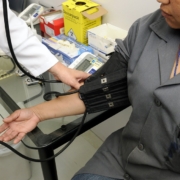The Importance of Seeking Professional Guidance: Navigating Online Medical Advice
In today’s fast-paced world, where information is readily available at our fingertips, understanding medical advice is crucial for making informed health decisions. Whether it’s self-diagnosis based on online searches, advice from friends, or consultations with healthcare professionals, knowing how to interpret and act on medical advice can significantly impact your health outcomes.
The Importance of Qualified Medical Guidance
First and foremost, it’s critical to recognize the difference between qualified medical advice and general information. Medical professionals—doctors, nurses, and specialists—possess years of training and experience enabling them to diagnose, prescribe, and provide tailored care. Their recommendations are based on a thorough understanding of medical science, clinical experience, and the unique aspects of a patient’s health history.
In contrast, non-professional sources, such as websites, social media, or even well-meaning friends, may lack the appropriate context, leading to misinformation or misinterpretation. For instance, an anecdote about a treatment that worked for one person may not be suitable for another due to different health conditions or drug interactions.
The Rise of Telemedicine
The rise of telemedicine has made it easier for patients to access medical advice without the need for in-person visits. While this can improve access to healthcare, it also requires patients to navigate this landscape wisely. When discussing symptoms with a healthcare provider over a video call or chat, it’s essential to provide complete and accurate information to get the best possible advice.
Additionally, telemedicine should not replace regular check-ups or emergency visits when necessary. There’s a time for online consultations and a time to seek immediate attention.
When to Seek Professional Medical Advice
Recognizing when to seek professional medical advice is vital. General symptoms like headaches or fatigue may not always require a doctor’s visit, but persistent or unusual symptoms—such as severe pain, breathlessness, or sudden changes in health—warrant immediate attention.
Likewise, routine screenings and preventive care play a crucial role in overall health. Regular visits to a primary care physician can help catch potential health issues before they escalate.
Empowering Yourself with Knowledge
While professional advice is irreplaceable, being an informed patient is equally important. Educating yourself about your health conditions, treatments, and medications can empower you to engage in meaningful conversations with healthcare providers. Ask questions, seek clarifications, and don’t hesitate to express your concerns.
Online resources, when used judiciously, can provide valuable insights. However, always cross-reference information with credible sources and consult healthcare professionals before making decisions based on what you find online.
The Dangers of Self-Diagnosis
In the age of the internet, self-diagnosis can be tempting. However, it often leads to misdiagnoses and inappropriate treatments. For example, a person experiencing a cough could mistakenly assume it’s a common cold when it may be a sign of something more serious, such as pneumonia or an allergic reaction. Relying solely on online symptom checkers can create unnecessary anxiety and delay proper treatment.
Conclusion
In sum, while the accessibility of medical information has significantly increased, the need for qualified medical advice has never been more critical. Empower yourself by understanding the difference between professional and general advice, actively engaging with your healthcare providers, and seeking timely medical care when necessary. Your health is invaluable—take the steps needed to safeguard it by making informed decisions based on reliable, qualified medical guidance.










